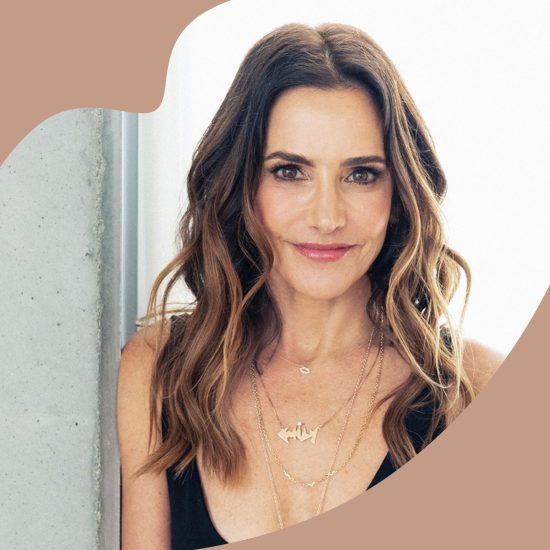As polyamory, open relationships, and consensual non-monogamy enter the mainstream discourse, they often feel like the last taboos of sex and relationships. How do I know? Take a look at social media comments anytime the topic is discussed:
Seems like an excuse to cheat to me.
Ladies if your man wants a SIDE PIECE then run, don’t walk in the other direction!!!!
I don’t judge anyone but personally, I require monogamy only, thank u very much.
These are just a sample of the many, many comments I’ve seen online about non-monogamy, even in sex-positive spaces. In a world where vibrators are available at your nearest drugstore, we still get freaked out by alternate sex and relationship models. It seems that no matter how prevalent cheating or divorce is, we can’t quite come to grips with the fact that some of us – many of us – will, in fact, want to experience intimacy with more than one person someday.
I do understand why it’s a triggering idea, though. Non-monogamy touches on tender emotional territory, particularly for folks who grew up with a fear of abandonment. Even if we grew up with amazing caregivers though, and even if we think of ourselves as open-minded, sexually liberated people, we’re marinated every day in a cultural belief that monogamy equals worthiness. That we were chosen, special, plucked from the crowd to fulfill someone else’s happiness. And, that if someone wants to be non-monogamous while in a relationship with us, that must mean we’re not enough: not hot enough, not interesting enough, not young enough, not great enough at sex, etc. etc.
My personal take is that monogamy and non-monogamy are equally valid relationship models. The problem with monogamy isn’t the model itself, but the fact that it’s compulsory: Google “relationship escalator” to see what I mean. When monogamy is a conscious choice – meaning, you’ve examined the other relationship models out there, and done your internal work of understanding what you need relationally and sexually to thrive – monogamy can be fantastic. But it doesn’t work for everyone, which is why more people are getting curious about non-monogamy and what it has to offer.
Still though: there’s a stigma, and you know what the antidote to that is? Truth. So let’s tackle the top seven non-monogamy myths, and truth-bomb them one by one.
1. MYTH: It’s a hall pass for horny guys
FACT: Women are often the drivers of non-monogamous arrangements
We live in a patriarchal society, so it doesn’t surprise me that people assume non-monogamy is one more way for men to win. But the facts don’t support this: when anthropologist Dr. Wednesday Martin was on Sex With Emily, she talked about how monogamy is particularly rough on female desire. In fact: current primatology research reveals that many female primates strategically seek out multiple mates, and probably have for eons.
But wild primates aside, there are countless longitudinal studies that confirm a consistent pattern: in a long-term, committed relationship, women lose interest in sex between years one to four. This pattern has given rise to the frigid wife stereotype when in truth, wives aren’t less interested in sex than their husbands. Research shows just the opposite: when women are allowed sexual variety, they become a lot more sexual in general.
2. MYTH: It’s only for bi women in straight relationships
FACT: It’s for everyone
This falls under what I call the “necessary evil” justification for non-monogamy: that in a straight, otherwise monogamous couple, the woman realizes she’s bi, and her gracious male partner allows her to hook up with other women. How magnanimous!
The truth is, this is often a justification for what is known in poly circles as a “one penis policy:” the idea that a woman can hook up outside of her straight relationship, but only with fellow women. We rarely hear about a “one vulva policy” for penis owners though, so we can very quickly see the imbalance here. The fact is this: all kinds of people enter into non-monogamy, not just bi women.
3. MYTH: It’s for immature/selfish/entitled people who can’t make up their minds
FACT: It requires introspection, maturity, and above-average communication skills
Here’s an article I love about polyamory and feminism, from which I’ll quote directly. “The pervasive stereotype is that…men pursue women for casual sex, while women seek a partner. In contrast, those I spoke to in the polyamory dating scene said both men and women are expected to enjoy sex for its own sake, without judgement, and that the “ghosting” and callous behavior so widespread in monogamous dating is practically unheard of in the polyamorous world.”
If you’re viewing polyamory with a monogamous lens, naturally, you’ll bring the baggage of monogamous dating with you. But if you spend time in a polyamorous scene, you’ll find that there is usually an expectation of emotional maturity. To treat people as disposable sex objects is not part of the culture, really, of most polyamory communities. A mutual, agreed-upon exchange of pleasure though? That definitely is intrinsic to polyamory communities, whether the parties involved are looking for multiple partners, friends with benefits, or casual sex that’s truly satsifying for everyone. (And, pst – speaking of pleasure – if you’re looking for hands-free vibes as a vulva owner, why not give the Dame Eva a try? It’s a wearable clitoral vibrator that you can use during partner play.)
4. MYTH: It’s all about sex
FACT: It’s way more about communication
This myth overlaps with the “horny guy” assumption: that non-monogamy/polyamory is for people who can’t keep it in their pants, and have a problem with impulse control.
In reality, most polyamorous people are nerds for communication, and spend way more time talking and processing their feelings than having wild, non-stop sex. Does sex with multiple partners happen? Sometimes. But for non-monogamy to work peacefully, you really have to be on top of your communication game. Polyamory Awareness is one of my favorite meme accounts for this topic, with tons of tips for poly/non-monogamy communication.
5. MYTH: It will fix your current relationship problems
FACT: It will put a spotlight on your current relationship problems
For those of you reading this article with stars in your eyes, thinking: “Omg, non-monogamy is just what I need to fix my marriage!” listen to me: this will not heal your relationship.
I hate to be the bearer of bad news, but it’s true: non-monogamy will reveal the pain points in your relationship. That’s not always a negative, though. Once you know where those pain points are, you can start to consciously work on them with focused attention (and possibly, therapy). Kenya K. Stevens is one of my favorite voices on this topic and has a great Instagram account that talks about opening up in a thoughtful way: Progressive Love Academy.
6. MYTH: It’s harmful to families and children
FACT: It’s healthy for families and children to see relationship models that serve their caregivers
Another form of handwringing around polyamory/non-monogamy is that it’s bad for kids. Listen: I actually think this argument has legs, if (and only if) the caregivers involved aren’t spending time with their children. But I think most people can see that caregivers neglecting their children isn’t exclusive to polyamory.
The truth is, happy, fulfilled parents help raise happy, fulfilled children. Dr. Elisabeth Sheff is a researcher on polyamorous families, and has book titled Stories From the Polycule: Real Life in Polyamorous Families, as well as a great blog: The Polyamorists Next Door. In both her book and her blog, she doesn’t seek to valorize polyamorous families as better or worse than families spearheaded by a monogamous couple. What she does do, though, is give voice to children who grow up with many caregivers who love them, and give voice to caregivers who negotiate childcare among everyone involved.
7. MYTH: It’s more enlightened than monogamy
FACT: Conscious monogamy and conscious, consensual non-monogamy are equally enlightened
Here’s what I know of polyamory and non-monogamy in general: just like monogamy itself, it’s a huge tent with lots of personality types.
Across the board, I do think that polyamory attracts people who are comfortable challenging convention. But does that mean they’re more enlightened, smarter, or “better” than monogamous people? Nope. I have a ton of respect for folks who have studied the available relationship models out there, maybe even tried non-monogamy, and circled back around to monogamy from an informed, conscious place. That person, to me, is just as enlightened as the person who’s done the legwork of figuring out that polyamory/non-monogamy works better for them.
At the end of the day, polyamory, open relationships, and non-monogamy still have a steep hill to climb when it comes to mainstream acceptance and recognition. But the more we can talk about alternate relationship models with nuance and curiosity, the more everyone benefits. Why? Because we can become more honest and open about love and sex, and realize that we get to write our own life scripts: not just the ones that were handed to us.
Tolly Moseley is a writer based in Austin, Texas. Her stories on mental health, sex, and relationships have appeared in The Atlantic, Salon, Sex With Emily, and on-stage with Bedpost Confessions.











